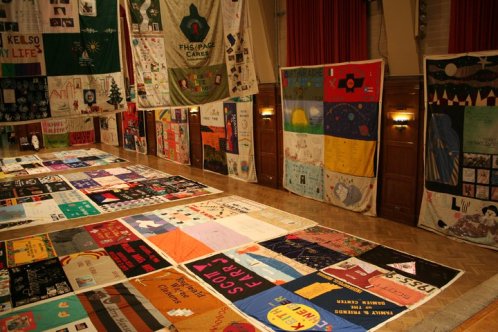Kris Wise MSW, LCSW
I completed my bachelor’s in social worker senior practicum working at an agency that at the time was called the AIDS Task Force of Northeast Indiana. I began my  full-time employment there a year later at the age of twenty-two. I could never have predicted how the work in HIV care coordination and later director of client services would impact my life and shape who I am. I was professionally raised within HIV and its service delivery. The confidentiality of my profession leaves me carrying stories and moments no one else will know. However, there are some things I can tell you.
full-time employment there a year later at the age of twenty-two. I could never have predicted how the work in HIV care coordination and later director of client services would impact my life and shape who I am. I was professionally raised within HIV and its service delivery. The confidentiality of my profession leaves me carrying stories and moments no one else will know. However, there are some things I can tell you.
I can tell you as I write this on World AIDS Day 2019, I am flooded with memories. Some still so real it is hard to image it wasn’t just yesterday. I will forever feel indebted to this work as I can’t imagine trying to survive this life without everything my clients taught me. Yes, I learned from my clients. There was personal and professional growth everyday and I hold so much gratitude for the gifts they gave me by allowing me into their life.
I learned a powerful sense of urgency building a motor within me that is difficult to shift. When you are surrounded by people cherishing every cup of coffee, springtime, and encounter you learn to do the same. You do it today as it was needed yesterday, and tomorrow is too late. This motor I know has annoyed a few peers since it started. Create it now, do it now, and don’t stop until it works. Yes, it is a motor created out of crisis and the acknowledgement that none of us have a guaranteed tomorrow. When another human being is suffering emotionally or physically, how can we not act urgently and remain ethical?
I learned to lie to nurses who questioned who I was to their patient as visiting hours were over and only immediate family could be present. I would nod my head in agreement to their assumption that he was my uncle. This was the first opportunity his partner had to rest and there were no other family that would visit. I learned how to look pain and suffering square in the eye and not budge, as sometimes our presence as another human being is the only act of dignity we have left to offer.
HIV impacts everyone and over those 13 years I would learn that HIV would often take a back seat to addiction, substance abuse, domestic violence, mental illness, loneliness, and poverty. The stigma of HIV impacted our daily work. I would meet clients in alleys, isolated streets, anywhere no one would question who I was and why we were talking. Prevention and care services offered to those living with HIV is unique. I have yet to find service delivery models created, shaped, and evaluated by those receiving the service. I witnessed empowerment, advocacy, and resilience firsthand when those living with the virus, often clients were given a voice at the table. Where they helped create solutions and seeing this intentional level of inclusiveness and ownership unfold was powerful.
I learned about grief. Anticipatory and active. My own, theirs, and the guilt survivors carried as there was no logic to the death of their friends or partners. I attended funerals. Not as many as they described in the late eighties, but enough bringing me to create the plan for my funeral before the age of twenty-five. I would attend funerals of different faiths, different cultures, and memorial services. I watched parents, partners, and children bury their loved one. I would stand alone by a casket at one funeral as I was the only person in attendance. I have stood guard during displays of the AIDS quilt and held strangers as they wept.
The magnitude of the suffering and trauma experienced was deadly even when you could survive it. Even when they themselves were still alive there is a realness and reality known and experienced drawing new definitions of privilege and oppression in our society. The fate of self, your family, friends, and community was not a political ploy to be debated and voted upon. Fighting HIV coupled with oppression drew me to research, data, and reading medical books. Searching for the right words to explain cryptococcal meningitis to a client’s family. The medical text gave insight to treatment, but literally began its description of the opportunistic infection with: cryptococcal meningitis is very depressing. Doing everything ‘right’ didn’t always mean a person would get better. Science was science, and control was a fallacy.
There have been great strides in treatment and prevention, and for that I am thankful. I still grieve, and I still process the trauma I witnessed. The experience lives in my body now, and I draw upon the wisdom my clients shared with me at every opportunity. I’ve stood witness to great acts of compassion, and inhumane acts of hate. Yet, it pales in comparison to the suffering they endured.
December is a time of the season often filled with red ribbons. May they serve as a reminder as they do today on World AIDS Day. May we remain intentionally aware the possibilities for individuals today would not exist without the lives and deaths of those who came before. Because of how they lived, advocated, protested, voted, and persevered others can live. We have yet to reduce human suffering without equity and human capital. May we never take it for granted.
